Achieving goals begins with small successes
Famed Rugby Player Toshiaki Hirose
speaks with Robert Walters Japan Managing Director Jeremy Sampson
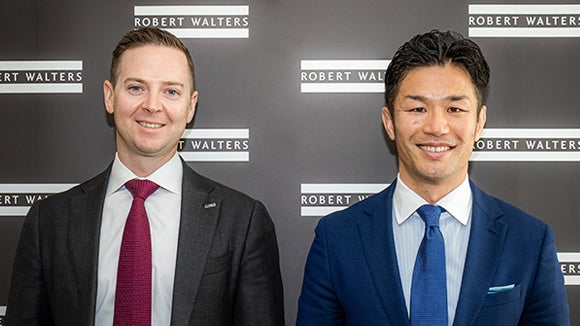
Achieving goals begins with small successes
Former rugby player Toshiaki Hirose was appointed captain of the Japanese National Rugby Team in 2012. Since then, the Japanese national team achieved a strong record of three wins and one loss in the 2015 World Cup England and made it to the top eight in the 2019 World Cup Japan. Hirose, whose experience as a team captain stretches back to his school days, shared the motto that guides him towards his aspirations: “to achieve great success, it is important to accumulate small successes.” Jeremy Sampson, Managing Director at Robert Walters Japan, spoke with Hirose about leadership and team management to succeed in the world.
Building small success experiences and sharing goals
In 2012, Hirose took the helm as captain of the Japan National Rugby Team which, at the time, never won a match in four World Cup tournaments in a row. In a book he wrote, Hirose stated that “a team can become stronger in a day if its mindset changes.” Sampson began the discussion by asking Hirose about his approach on leading the team.
“Because the team was always losing, many excuses were made to admit defeat. My first step was to break this cycle. By accumulating small successes, I hoped to create a winning mindset.”
In addition to building up small successes, Hirose emphasised the importance of sharing goals. “Our goal is to create a world where kindergarteners enjoy rugby and wear our team jerseys. We win for that. If the world we want to create is clear, everyone’s motivation goes up.”
Sampson, who played rugby for five years while he was a student in Australia, strongly agreed with Hirose's leadership theory.
“You’re absolutely right. One of the significant roles of leaders is to create a vision of the future that everyone can share, and to move everyone toward the same direction and goal. Whether it's business or sports, team members have their own strengths and talents. It’s the leader’s job to bring those talents and strengths together and drive the team towards a shared vision.”
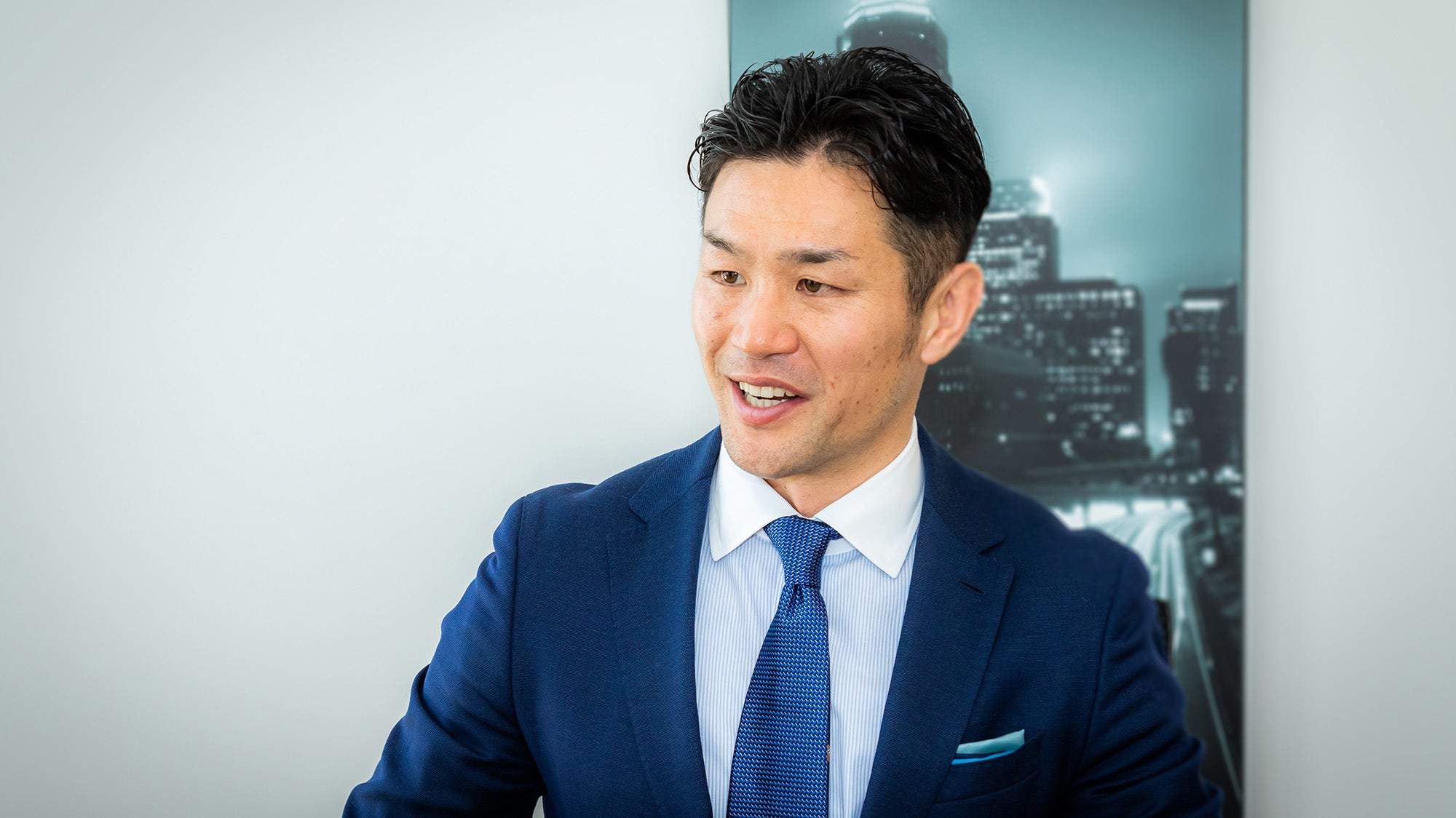
Diversity means understanding members as individuals
The Japan National Rugby Team is one of the most multinational teams in the sport. There are also many positions in rugby. Hirose stressed two points that he took into consideration when organising so many diverse people into a team.
“The first was to clarify the goals of the team and whether we could have a shared vision of the world we wanted to create. The second was to build good relationships because we are the same regardless of our nationalities. That being said, it’s important to celebrate and enjoy differences in cultures and nationality.
Sampson pointed out that diversity is also very important in business. “As Hirose said, I think it is important to look beyond backgrounds, nationalities and cultures and understand and respect team members as individuals.” When leading a multinational team, it is crucial to respect each other and value one-on-one relationships. By building trust among all members, the team can come together as a ONE TEAM.
“I think it simply comes down to 'acceptance' and 'open mindedness.' I feel that Japan has changed a lot in the last ten years. It’s become more natural for Japanese people to accept diversity. Regardless of nationality or background, the organisation works together and demonstrates each member’s individual strengths. It’s up to the leader to create a team that can contribute to its goals. ''
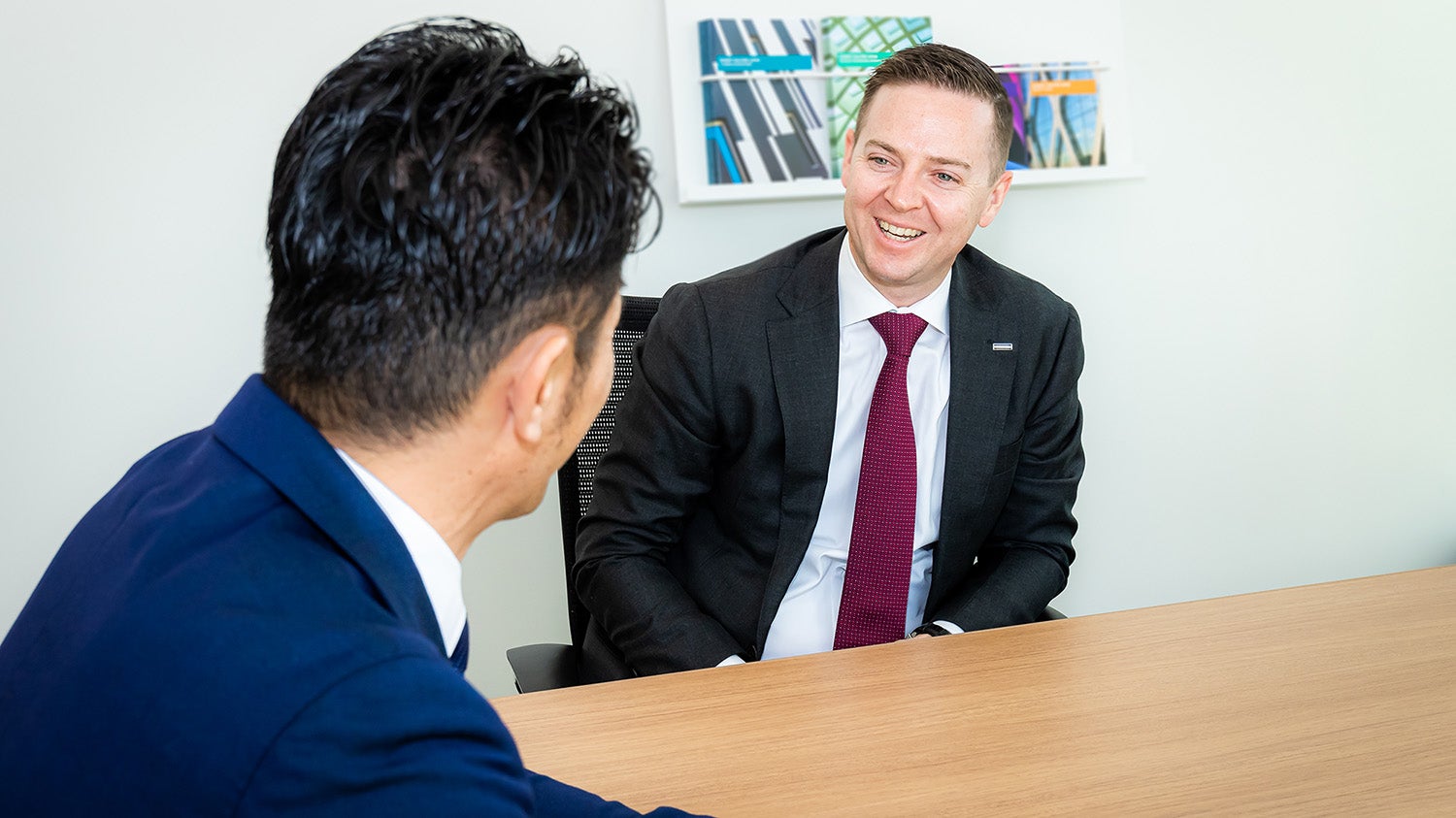
Diversity leads to organisational strength
Sampson further expanded on the benefits of diversity in the organisation. “Diversity leads to innovation. I think that increasing diversity can help us understand a wide range of values, generate more ideas, nurture the entire organisation, and lead to growth.”
“In the business world, if an organisation has diversity and can capitalise on the power of those who belong to it, then it can perform well,” Sampson added. “Is this also the case with rugby?”
Hirose nodded strongly. “Absolutely. When it was only Japanese players on the team, I had difficulty in seeing our strengths and continuously believed we were no good. But when Eddie Jones and Luke Thompson came, they helped me realise and believe in our strengths. It’s also the other way around. For example, we had a Tongan teammate. Although he may have been unable to unleash his full potential representing Tonga, he was able to demonstrate it when he joined the Japan team. While we have been helped by people from abroad, I think that Japanese culture has also helped him in some respects too. Diversity benefits all of us.”
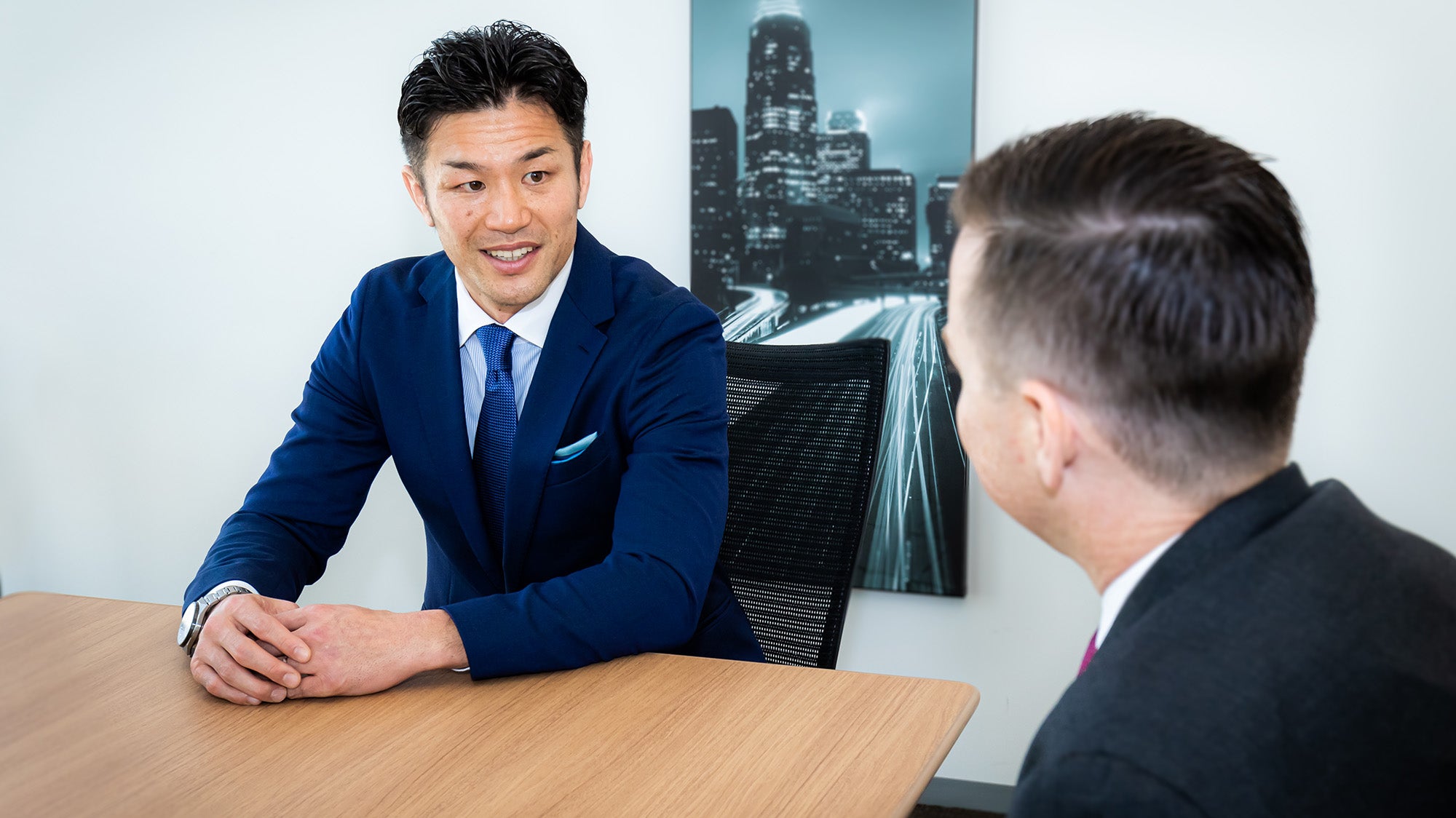
Concentrate on what you can control to overcome anxiety
At the Rugby World Cup 2015 in England, Japan pulled a stunning defeat over powerful South Africa with a score of 34-32. For Hirose, it was his second World Cup victory in 24 years. He explained how he overcame anxiety when tackling a big challenge.
“In my head, I had clear vision of the kind of world I wanted to create. As a team that had never won, we fought with the mindset that we had nothing to lose. And with each small step we grew stronger. There was no match that we felt we couldn’t win before fighting.
When facing a game, Hirose explained that he concentrated on putting everything he had prepared into action. “It’s important to be in a state of mind that focuses on what you can control. Although you can't control the results, what you can control is how you prepare,” he emphasised.
Sampson agreed that preparation is the key to projecting confidence in important business situations.
“In rugby, players train vigorously in preparation for games. It’s the same in business too— leaders train and coach employees to prepare them to take on challenges in the best way possible.”
Sampson also noted that small victories are needed to be confident in business. “I think the importance of achieving small wins is common to all people. Sometimes the goal can seem too big or too challenging. In such cases, it helps to break down the goal into smaller sections. Reflect on past victories and challenges you have overcome to understand your strengths and weaknesses. Based on that, decide what needs to be achieved. When dealing with difficulties and challenges, facing yourself is an important process, because everyone goes through life by overcoming challenges.”
“As you have mentioned, it’s perfectly right to focus on what you can control,” Sampson continued. “In business too, it's a good idea to focus on the team’s performance and what you can do in your team. You can't control what your competitors do or how the market moves. I think it’s important to focus on what we can do and do our best.''
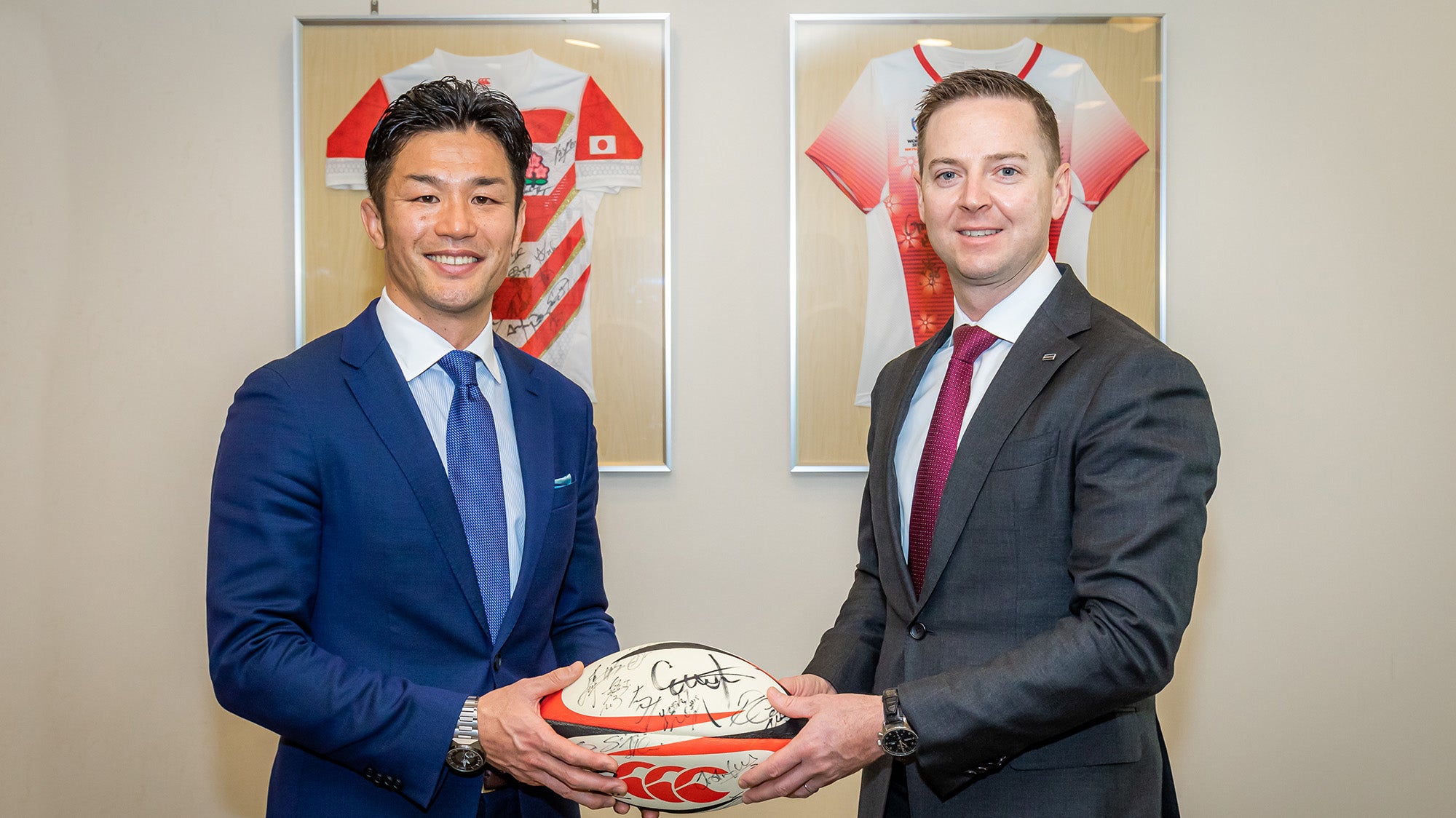
A life filled with challenges is a life filled with growth
As someone with vast experience in facing great challenges throughout his career, Hirose concluded with a message for those wanting to take a step toward their goals and dreams.
“I think you have to trust yourself first. There are many things you can't understand unless you try it, so it's important to start by doing what you think is good. Instead of regretting that “I didn’t do this,” or “I didn’t do that either,” I enjoyed the feeling of having pursued an interesting life as a result of challenging myself a lot. Even though I sometimes feel like I overexerted myself at the end, I enjoy the feeling of taking on the challenge.
Sampson also offered words of encouragement for those who are unsure about taking on challenges.
“I think challenges drive growth—they help people develop skills, learn through new experiences, and move one step further in life. It's easier to avoid challenges and stay in your comfort zone, but that doesn't give you much growth. Sometimes by taking risks and pushing ourselves to the limits, we can grow both as individuals and as professionals. I think it is important to take on challenges to keep growing.”
Related content
View allTOKYO, JAPAN - Specialist recruitment firm Robert Walters Japan unveils key insights into the experiences and expectations of LGBTQ+ individuals, diversity and inclusivity in the Japanese workplace through its latest survey*. The Importance of Diversity and Inclusivity The survey asked respondents t
Read MoreTOKYO - Specialist professional recruitment firm Robert Walters announced trends in the hiring of foreign national candidates on April 10. In recent years, as the domestic workforce has been shrinking, companies have been focusing on boosting diversity in their hiring process. In this release, we ta
Read MoreOSAKA - Specialist professional recruitment firm Robert Walters Japan is pleased to announce the relocation of its Osaka office to Northgate Building Office Tower, next to JR Osaka station, from 1 April 2024. The Osaka office is a key hub serving clients and candidates in central and western Japan s
Read More